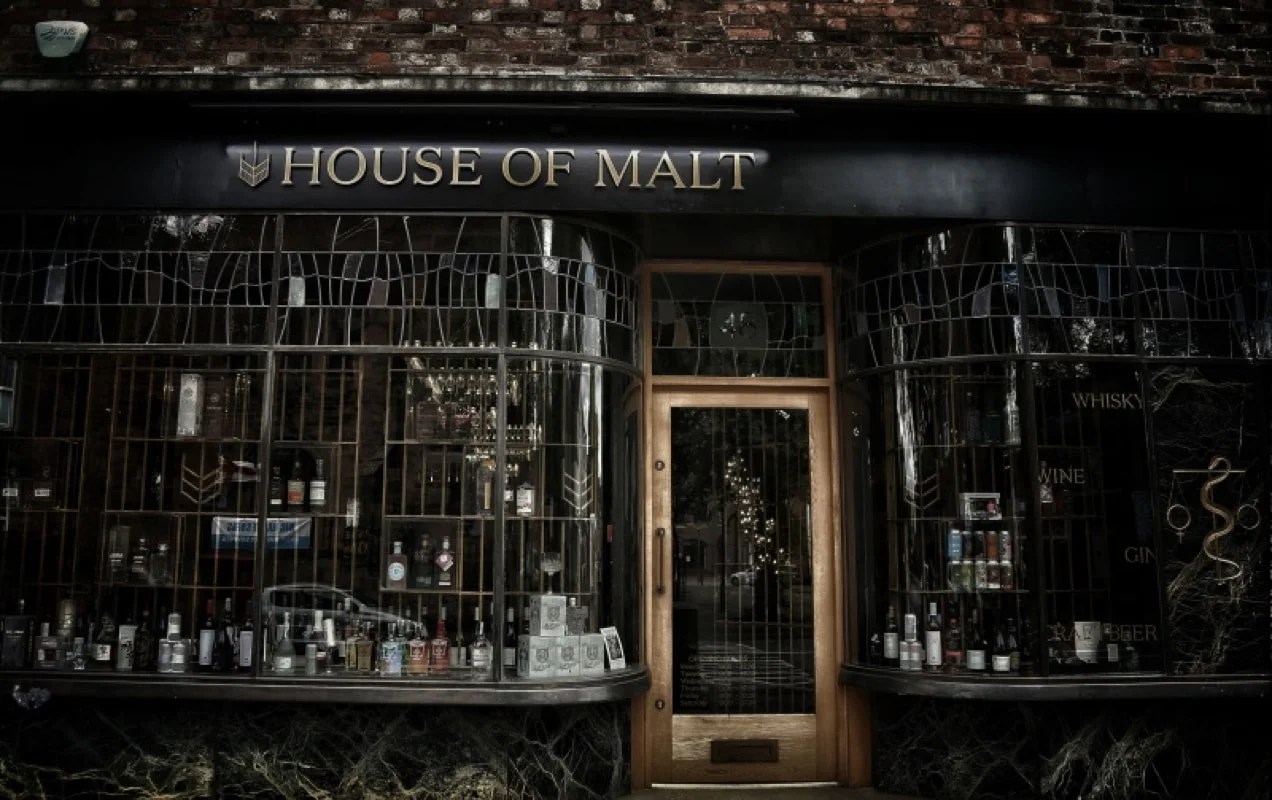Located in Northern England, House of Malt is an independent family business that has grown into one of the top online retailers of specialty whiskeys and spirits in the U.K. They were founded in 2015 and have used WooCommerce to run their online operations since 2017.
House of Malt has a retail location and warehouse in Northern England, though a large majority of their sales are conducted online through their WooCommerce store. They currently ship within the U.K. and have plans for international expansion.
Woo spoke with Jethro Hazelhurst, House of Malt’s Ecommerce Director.

WooCommerce for whiskey
↑ Torna in cimaHouse of Malt chose WooCommerce as their ecommerce platform because they wanted to avoid the other highly regulated platforms; they liked how customizable the Woo platform is, and they wanted to own as much of their online business and operations as they could.
Since then, House of Malt has partnered with Woo through the Enterprise Ecommerce program, which has improved their cash flow. Woo has been a boon to their business in many other ways, too: increased average order value, conversion rates, and a decrease in time to payout from seven days to one day have all helped them ensure there is working capital to support their business growth.
Big wins
- Increased conversion rate and grew average order value by 22% after implementing Apple Pay through WooPayments.
- Decreased their cash payout time from seven days to one day with help from the Woo Customer Success team.
- Founded in 2015, House of Malt has grown to be one of the top three online sellers of alcohol in the U.K.
Key Extensions
- WooPayments with Apple Pay
- PayPal and PayPal Pay Later
- Searchanise
- Storefront theme
- Google Listings & Ads
- Klaviyo email marketing
Success in the time of Brexit and Covid-19
↑ Torna in cimaLike many British businesses, House of Malt was impacted by the export tax levies following the Brexit legislation. With the complications that arose, they decided to shift their focus to customers within the U.K., and have since become one of the top three businesses in the U.K. for online specialist whisky sales.
During the closures of Covid-19, House of Malt was able to maintain their business despite the shutdowns, operating exclusively through their WooCommerce website.
Now, their physical store is still an important part of their brand and provides unique experiences for customers that their competitors can’t match.
Malt matching: Using data to cater to customers
↑ Torna in cimaHouse of Malt has a fantastic understanding of the customers that use their site, which helps inform their ecommerce strategy.
In general, House of Malt serves four different customer interests:
- Customers that like to try the new products offered on the website.
- Repeat buyers who return to houseofmalt.co.uk for their favorite products and purchase the same each time.
- Collectors who like to stay up to date on the latest releases and collections.
- Wholesalers that can’t get a product anywhere else, and frequent House of Malt for repeat purchases that restock bars and small shops.
This data is especially useful due to ad restrictions that are placed on alcohol merchants — which House of Malt combats with a strong email marketing program.
Increasing average order value by 22% with Apple Pay and WooPayments
↑ Torna in cimaHouse of Malt offers a number of different payment options, including PayPal, PayPal credit card processing, and Apple Pay and Google Pay through WooPayments.
They decided to bring on WooPayments for Apple Pay specifically because of their site traffic. Jethro noted that, “The majority of our users are mobile and Apple users on Safari. I can easily see why the conversion rate would go up as a result of having Apple Pay. I can’t think of a reason why it wouldn’t. There’s just less friction. It’s been a game-changer for us.”
Since adding Apple Pay, House of Malt has noticed a 22% increase in average order volume, and an increase in conversion rates since offering more payment options.
“The more payment methods we offer the better — 100%. We’ve seen increased conversion rates since we started offering more payment methods. Using all the payment methods and WooPayments, we’ve seen nice growth over the years. It’s all been looking good to carry on using WooCommerce to grow.”
— Jethro Hazelhurst, Ecommerce Director, House of Malt
Bringing whiskey across the water
↑ Torna in cimaHouse of Malt is planning for international expansion, first to Europe and then to the U.S. They’re working to bring on shipping partners and their customs logistics, aiming for the best possible customer experience for overseas orders.
With their new warehouse, House of Malt anticipates thriving under periods of high order volume, like the holiday season and their eventual international expansion.
Incorporating more product and payment options
↑ Torna in cimaHouse of Malt is also working on expanding their product catalog, improving their site experience, and developing a subscription service and loyalty program for their repeat customers.
They’re continuing to look for additional payment options in order to cater further to customer payment preferences. This includes expanding their buy now, pay later (BNPL) options with additional providers.
Hazelhurst is certain about the benefits of BNPL: “The fact that people can use buy now, pay later also increases average order value. All buy now pay later options will always help.”
Overall, House of Malt has had a great experience with WooCommerce, and is looking forward to the future.
“All your work on WooCommerce and WooPayments is making a nice little impact,” Hazelhurst said. “Somewhere in the north northwest of England, in a tiny little corner of an ancient town. We’re getting great whiskey into the hands of people with Woo.”
About





I have read your blog/article. A lot of useful information is explained in it which was not known to me before. Each and every thing is explained very clearly and openly. Keep uploading more such information.